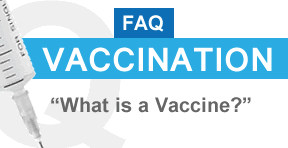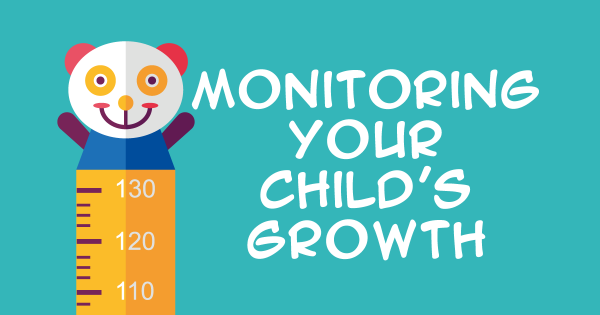What’s in a vaccine?
Vaccines usually comprise a very small amount of killed virus, bacteria, parts of bacteria, a very small amount of live but weakened virus, or a very small amount of modified toxin excreted by bacteria. Certain vaccines may contain a small amount of antibiotic or preservative for vaccine preservation. A small amount of aluminium salt can be part of the vaccine content as it helps to promote better immune response. All ingredients used are to ensure that the final product will be safe and effective.
What diseases can vaccines prevent?
Vaccines can prevent diseases like Tuberculosis, Hepatitis B, Diphtheria, Tetanus, Pertussis, Polio, Haemophilus influenza type b (Hib), Japanese Encephalitis (JE), Human papillomavirus (HPV), measles, mumps, and rubella. These are the diseases that are listed in the National Immunisation Program vaccination schedule. Other diseases like Rotavirus, Pneumococcal, Influenza, Hepatitis A and Chickenpox also can be prevented with vaccines.
What is the difference between vaccines listed in National Immunisation Programme (NIP) and other recommended vaccines?
Vaccines listed in the NIP by the Ministry of Health help prevent most major childhood diseases. They include tuberculosis, diphtheria, pertussis, tetanus, measles, Haemophilus influenza type b (Hib), meningitis, and congenital rubella syndrome. These vaccines are funded by the government and are basic requirements, as suggested by the World Health Organisation (WHO). They are provided for free at government clinics.
Meanwhile, recommended vaccines are optional in Malaysia. Recommended vaccines are not funded by the government, though they are readily available in most private clinics and hospitals around the country. These vaccines are effective in preventing diseases such as pneumococcus (a type of bacteria that causes meningitis) and rotavirus (a virus that causes severe diarrhoea and vomiting). Severe infection from these diseases can be fatal.
What are combination vaccines?
Vaccines listed in the NIP by the Ministry of Health help prevent most major childhood diseases. They include tuberculosis, diphtheria, pertussis, tetanus, measles, Haemophilus influenza type b (Hib), meningitis, and congenital rubella syndrome. These vaccines are funded by the government and are basic requirements, as suggested by the World Health Organisation (WHO). They are provided for free at government clinics.
Meanwhile, recommended vaccines are optional in Malaysia. Recommended vaccines are not funded by the government, though they are readily available in most private clinics and hospitals around the country. These vaccines are effective in preventing diseases such as pneumococcus (a type of bacteria that causes meningitis) and rotavirus (a virus that causes severe diarrhoea and vomiting). Severe infection from these diseases can be fatal.
Are vaccines safe?
According to the US Food and Drug Administration (FDA), vaccines are very safe as they have been tested extensively for safety purposes before they become commercially available.
The standard procedures of clinical development for a vaccine are as follows:
- Phase I – Small groups of people given the trial vaccine
- Phase II – Expanded group to include people with characteristics similar to those for whom the vaccine is intended
- Phase III – Given to thousands of people and tested for efficacy and safety
- Phase IV – On-going studies after the vaccine is approved and licensed
It normally takes several years before a vaccine can be licensed. The rigorous tests conducted all work to ensure that vaccines that have been licensed are safe for use. In fact, once a vaccine is in use, the US Centers for Disease Control (CDC) and FDA will continue monitoring it for any adverse events via the Vaccine Adverse Event Reporting System (VAERS). If any potential problems are detected, both the CDC and FDA will initiate further investigations. Depending on the severity of the problem, additional warnings may be printed on the vaccine’s labels/packaging or the vaccine’s licence could be revoked.
Like any medication, vaccines have been known to cause some side effects. Most of these effects are minor (like soreness where the shot was given, irritability, or a low-grade fever) and typically last for only a few days. Serious reactions to vaccines are very, very rare.
Don’t infants have natural immunity? Why do they need vaccines?
Generally, babies will receive temporary immunity from their mothers during the last few weeks of pregnancy. However, this only applies for diseases to which their mothers are immune. Babies who are breastfed will also be temporarily protected from minor infections like colds, though these antibodies that protect your baby do not last long.
A child only develops natural immunity once he or she has been exposed to, or is infected with a disease. It is true that the result of natural immunity is better than vaccination, but the risk is much greater as well. For example, a natural chicken pox infection may result in pneumonia but vaccination will only cause a sore arm for a few days.
My child is healthy. He doesn’t need vaccinations.
Every child is at risk of infection even though they are healthy. Vaccination helps protect your child from a disease before it strikes, keeping your child happy and healthy. Once your child gets infected, vaccination will be too late. Remember, prevention is always better than cure!
Can vaccines overload my baby’s immune system?
No, vaccines do not overload your baby’s immune system. Vaccines contain antigens from germs that stimulate the body’s immune system to work. These antigens are usually killed or too weak to cause any illnesses. Besides, vaccines contain only a very small amount of antigens that baby will encounter from his surroundings. Therefore, vaccines will not harm your baby, even if he receives a few vaccinations in a day.
Vaccines make my baby sick.
Vaccines have been known to cause side effects like low grade fever, soreness at the injection site and irritability. These effects are usually temporary. Serious reactions or death related to vaccinations are extremely rare. In fact, your child may be exposed to greater danger from various diseases, if he is not vaccinated.
I don’t want my baby to get autism.
Vaccines do not cause autism. Scientific studies show no relationship between vaccination and autism. Some sources suggest that vaccines containing thiomersal (a compound of mercury) could cause autism. The combination vaccine of Measles-Mumps-Rubella (MMR) has also been linked to autism. However, various studies that have been done on thiomersal and MMR by scientists and researchers around the world all point to the same conclusion: there is no link between vaccination and autism.
The autism and vaccination link originated from a fallacious study by Dr Andrew Wakefield and was published in 1998 in Britain. The publication was subsequently retracted, and 10 out of 12 authors of the study withdrew from having anything to do with it. This study resulted in a drastic decline in MMR vaccination in Britain, causing a consequent increase in measles with many deaths in the following years.
Are there any reasons to delay vaccination?
If your child develops a fever and his body temperature rises above normal (more than 38°C), you should postpone his vaccination appointment until he makes a full recovery. There are other medical reasons that can delay vaccination. If you are unsure, it is best that you clarify your doubts with your doctor or paediatrician.
Should parents get vaccinated?
Parents and caregivers (including grandparents, guardians, close relatives) who usually come in close contact with children are advised to get vaccinated as they are usually the carriers of childhood infections. For instance, family members and parents in particular were identified as the main source of contagious infant pertussis (whooping cough). Vaccinated parents and caregivers will contribute to the maintenance of herd immunity, which is a form of immunity that occurs when vaccination of a significant portion of a population provides a measure of protection for individuals who have not been vaccinated or developed immunity.







Komen